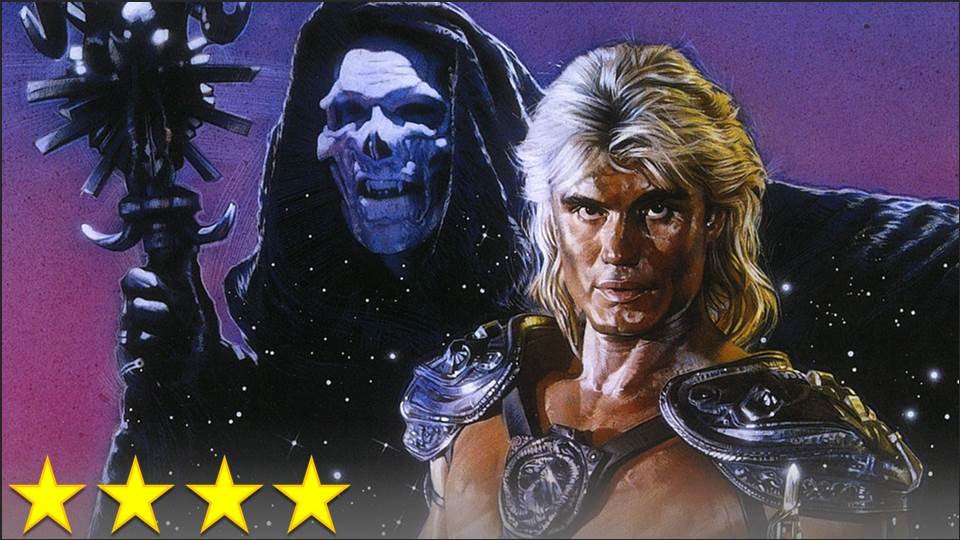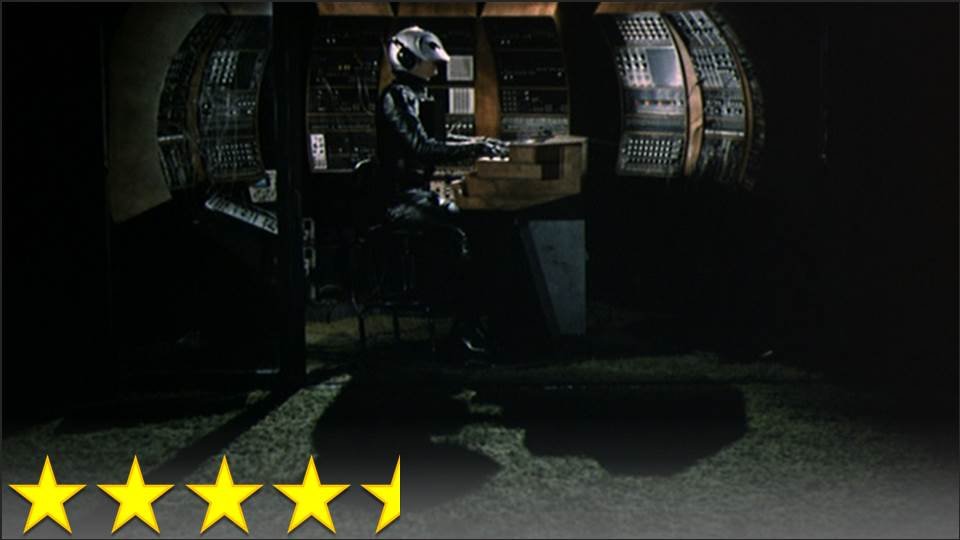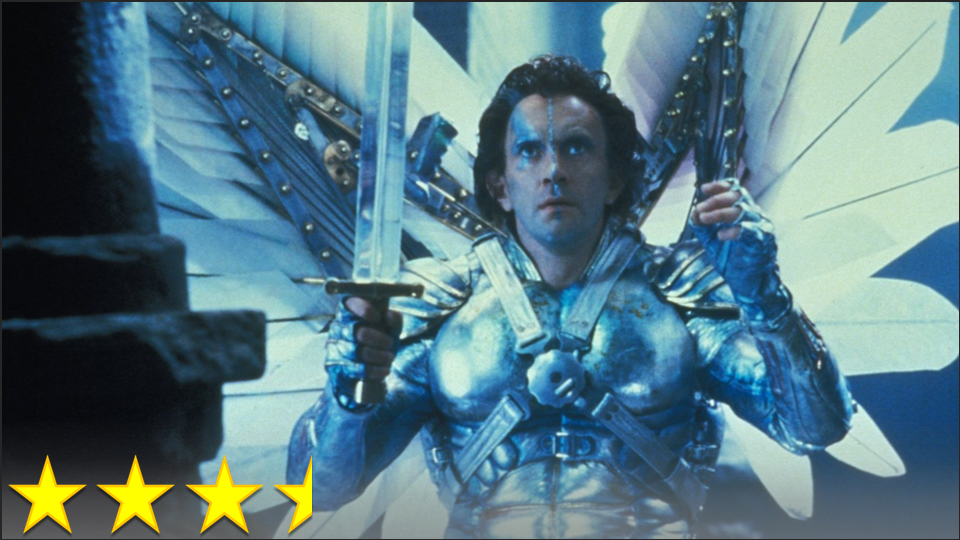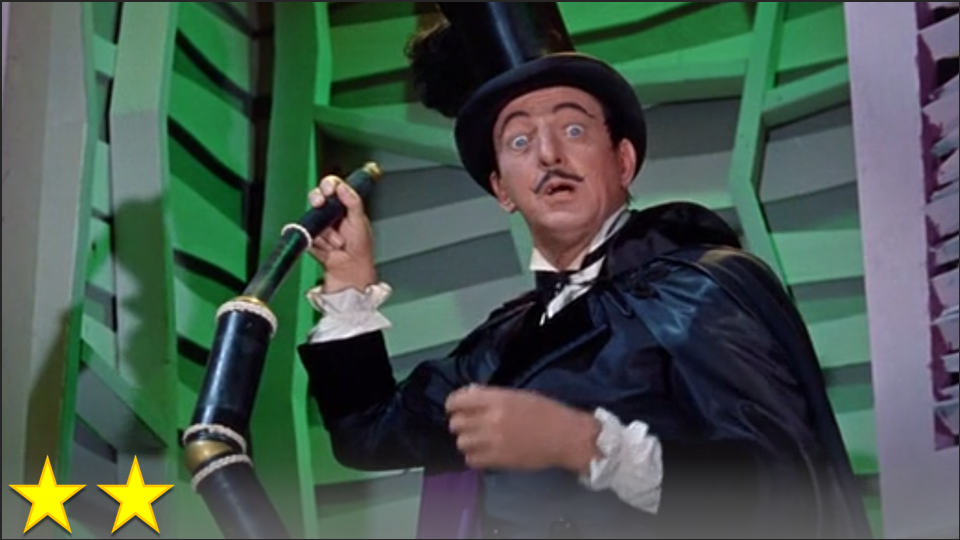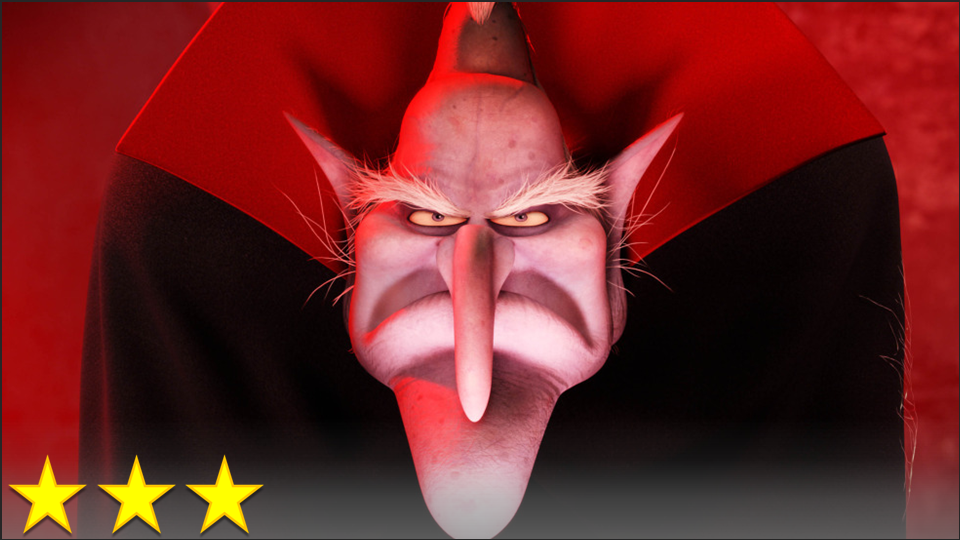Yes, I know this movie is crap, but hear me out.
There are times in life when we need a certain kind of movie to deliver a certain kind of experience. Very often for me, the experience I’m seeking is a movie that consistently bounces back and forth between being excellent . . . and being so bad it’s good. The area in the middle is obviously dangerous territory – that’s where all the bad movies live. But once in a blue moon, there’s a film that has many very strong elements, but its weak elements are so laughable that they don’t harm the movie at all; instead, they add to the film’s charm by being silly and dated. I seem to have the easiest time finding this experience with cheesy ’80s movies, and I picked up Masters of the Universe from the library because it looked like a fairly standard example of an ’80s movie. As luck would have it, this movie is the most ’80s movie I have ever seen – in all the best and worst ways – which makes it the perfect example of a movie that prances gracefully across the valley of mediocrity, leaping right from excellence to nanar and back again.
Let me be more specific about what makes it so bad (which I think paradoxically makes it delightful). First of all, this is immensely cliché, to the point that they even stole elements of their story from Spaceballs (as was pointed out in the Nostalgia Critic review) and made all of the villain’s soldiers look just like Darth Vader. The actors don’t give great performances for the most part, and everything feels scripted and rehearsed. At times it feels almost as though they were trying to make the movie as underwhelming as possible, by moving the plot from a fantasy world to friggin’ New Jersey suburbs. The logic of the film also makes no sense, as there are several occasions when the people of New Jersey should have noticed the crazy magic going on around them – and don’t even get me started on how ridiculously illogical that ending is. (I mean, the ignorance of the obvious “grandfather paradox” problems makes the ending almost unbearable in a way.)
On the other hand, this movie looks gorgeous. It’s one of the best looking I’ve seen because of its perfectly ’80s use of light, color, makeup, and old-fashioned special effects. The movie fully embraces how ridiculous it is, and offers plenty of over-the-top performances, which only get better when James Tolkan (Mr. Strickland from Back to the Future) arrives on scene, making the movie even more ’80s. The villain is so perfectly extravagant, and gives a wonderfully satisfying post-credits scene. The story is also very focused on music, particularly from synthesizers, so at this point I think I might be overdosing on ’80s nostalgia. And did I mention how awesome the color looks?
However, at the end of the day, I can understand why someone wouldn’t like this movie. I can especially understand why a fan of the original TV series would hate this movie. On the other hand, for those who want to inject deadly amounts of retro, nostalgic ’80s fantasy into their eyeballs, this movie delivers. Enjoy responsibly; don’t drive while high on ’80s.
